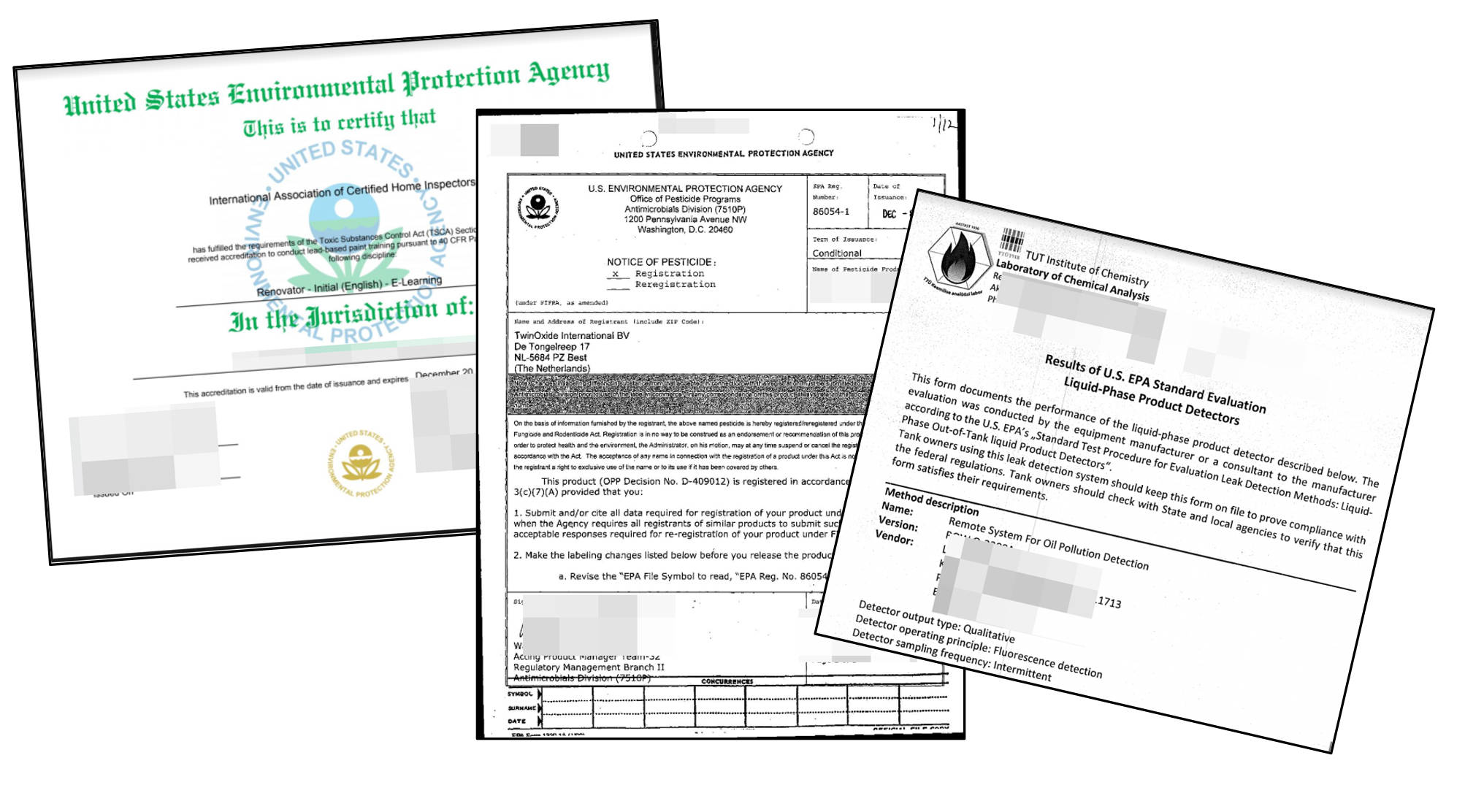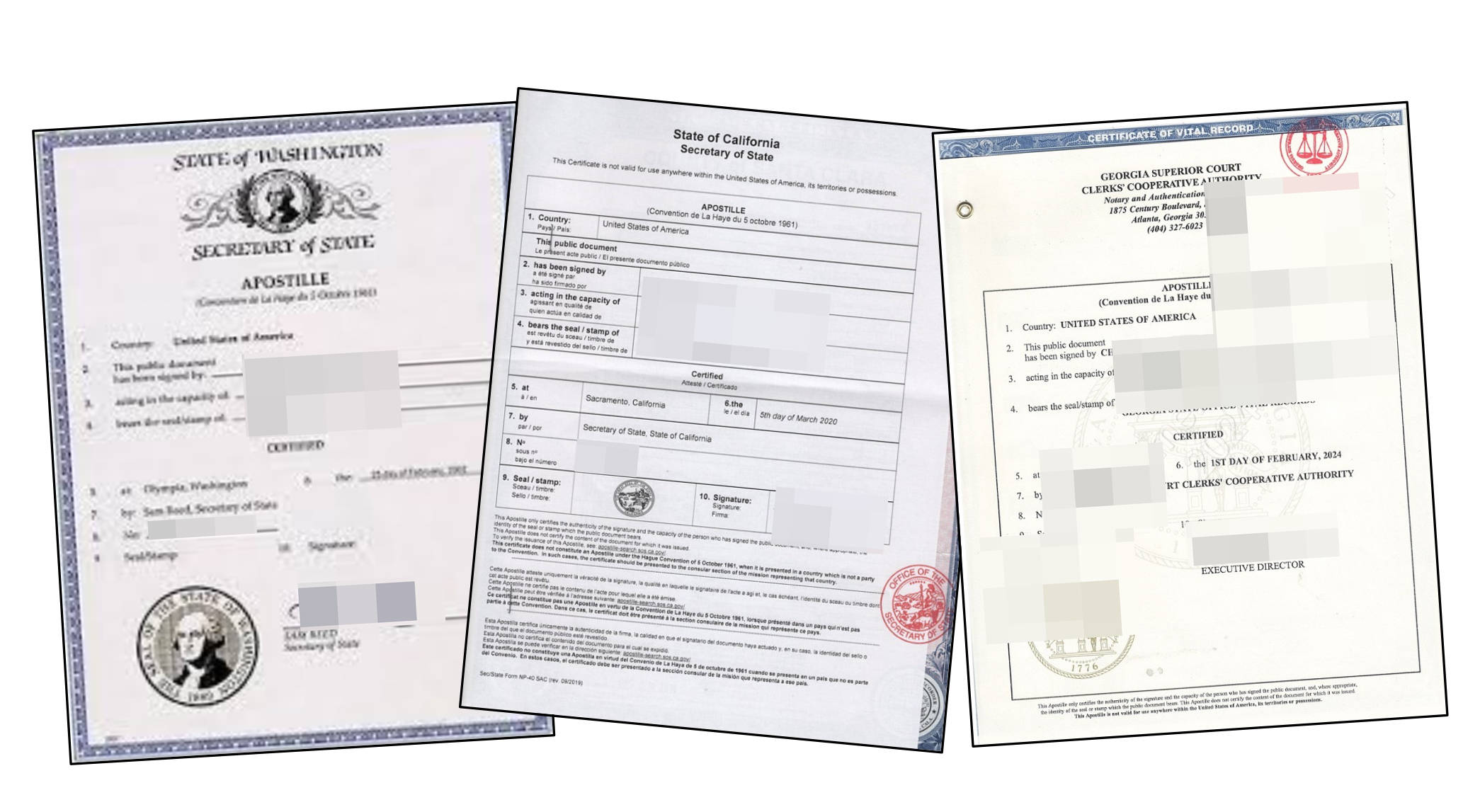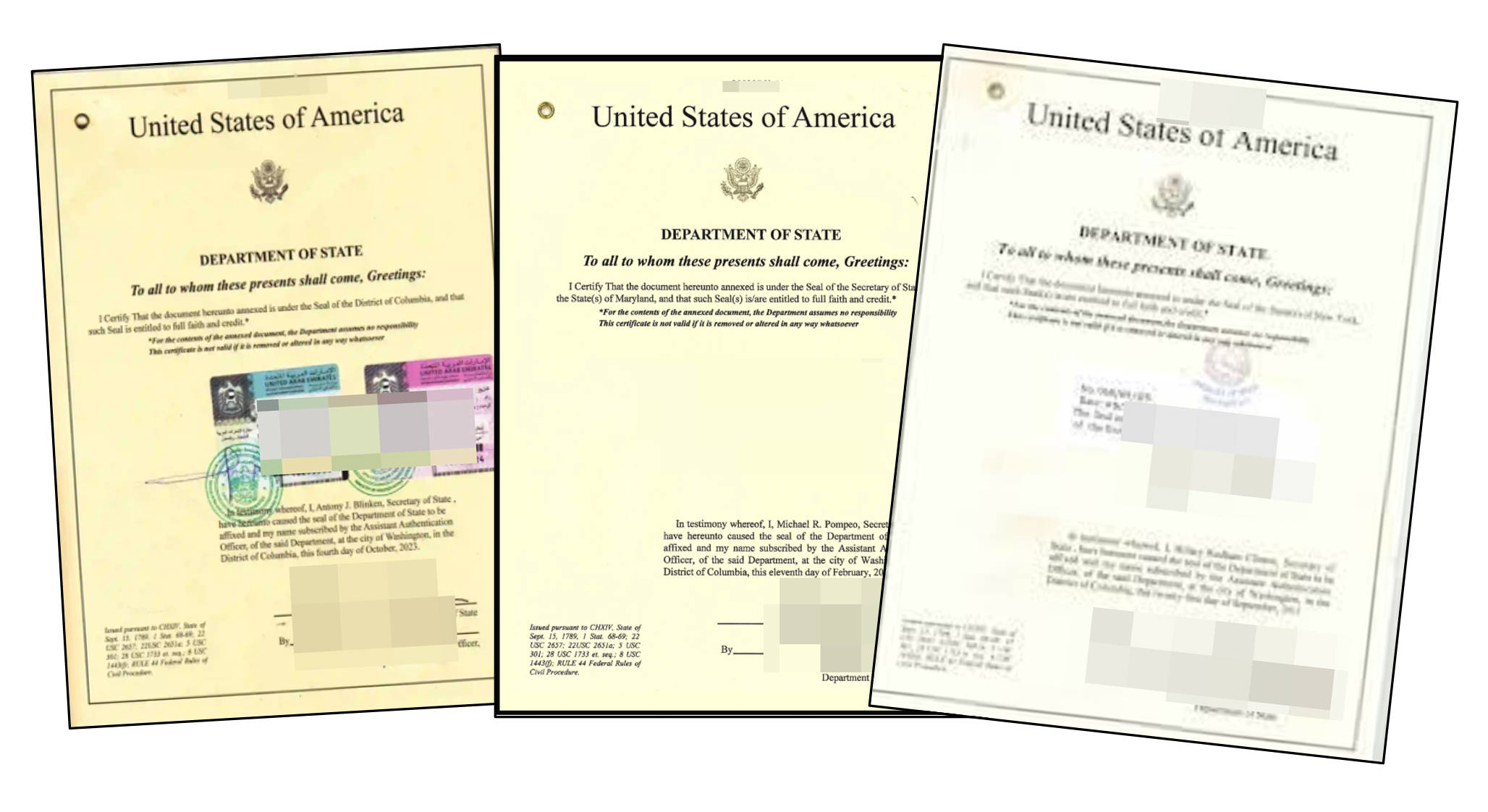American EPA Certificates Hague certification, consulate certification, consulate certification
 In international transactions, academic exchanges, or legal matters, document authentication is a key step to ensure that documents are recognized by another country. This is especially important in the field of environmental protection, where certificates issued by the U.S. Environmental Protection Agency (EPA) often need to go through specific procedures for international certification. This article will introduce U.S. EPA certificates and explain how to ensure their broad international acceptance through the Hague Apostille and consular authentication processes.
In international transactions, academic exchanges, or legal matters, document authentication is a key step to ensure that documents are recognized by another country. This is especially important in the field of environmental protection, where certificates issued by the U.S. Environmental Protection Agency (EPA) often need to go through specific procedures for international certification. This article will introduce U.S. EPA certificates and explain how to ensure their broad international acceptance through the Hague Apostille and consular authentication processes.
What are U.S. EPA Certificates?
U.S. Environmental Protection Agency (EPA) certificates are official documents issued by a U.S. government agency to verify that individuals, businesses, or products meet specific environmental protection standards. These certificates may cover various topics, such as air quality management, compliance with water quality standards, and the handling and disposal of hazardous materials. In international trade or cooperation, these certificates often need to be recognized by other countries to confirm compliance with environmental standards.
Examples of U.S. EPA Certificates
When it comes to U.S. EPA Certificates, many people may not be very familiar with them. Simply put, these certificates serve as proof of compliance issued by the U.S. Environmental Protection Agency (EPA) for certain products or services. For example, if you plan to manufacture, distribute, or import equipment, instruments, or components related to hazardous waste disposal, chemical regulation, or air pollution control in the United States, you must obtain the necessary certification in accordance with EPA requirements. This is not only to comply with local laws and regulations but also to ensure public health and environmental safety.
In the United States, the EPA headquarters is located in Washington, D.C. Essentially, an EPA certificate is usually issued by the relevant department within the agency. While different states and cities may have their own regulatory enforcement agencies, the core authority for certification still rests with the central EPA.
As the political center of the U.S., Washington, D.C. hosts many federal government functions, including the verification and issuance of various federal-level certifications, documents, and official papers. For many U.S. official documents that need to be used internationally—especially technical documents like EPA certificates—authentication, verification, or endorsement procedures are often handled by relevant agencies in Washington, D.C.
You might be wondering—why is a U.S. EPA certificate useful in China? Here’s an example: Some Chinese companies need to import specific testing equipment from the U.S., or they may be working on environmental protection projects in China and want to prove to local authorities that the equipment or products they use meet U.S. environmental standards. Additionally, in international cooperation projects, a trusted and internationally recognized document is often required to demonstrate the environmental compliance of a product or service.
In short, an EPA certificate serves as a kind of “international passport,” providing Chinese partners, regulatory agencies, or potential customers with a more formal and credible assurance.
In China, especially in international cities like Shanghai, Beijing, or Guangzhou, domestic companies or institutions looking to expand into overseas markets may need to import high-standard environmental protection equipment or certification documents from the U.S. to gain greater trust in domestic projects.
In such cases, an officially certified and verified U.S. EPA certificate can be extremely useful. It clearly assures Chinese stakeholders that the equipment or instruments have undergone strict environmental compliance verification in the U.S. This helps companies reduce complications during bidding, approval processes, or partnership negotiations, eliminating the need for repeated explanations or additional inspection reports.
This brings us to the topic of the Washington, D.C. Notary Office and Hague Apostille certification.
In the past, when Chinese companies needed to use official U.S. documents, they had to go through a complicated consular authentication process, which was both time-consuming and costly. However, on March 8, 2023, China officially joined the Convention Abolishing the Requirement of Legalization for Foreign Public Documents (commonly known as the Hague Apostille Convention). This means that after the convention took effect in China on November 7, 2023, notarized and certified documents from the U.S. only need Hague Apostille certification from an authorized U.S. agency to be directly recognized in China—eliminating the need for the lengthy consular authentication process.
When clients commission the Washington, D.C. Notary Office to assist with the Hague Apostille certification for their U.S. EPA certificates, this is exactly how the process works.
Through this channel, official U.S. documents—such as EPA certificates—first go through formal signing, stamping, and notarization in the U.S. Then, the authorized Secretary of State’s office issues the Hague Apostille certification. Once this certified document arrives in China, domestic institutions will directly recognize its legal validity, eliminating the need for additional consular authentication.
For clients, this significantly shortens the processing time and avoids unnecessary back-and-forth. In other words, what used to take over a month—or even longer—to complete can now be finalized in a much shorter time. This allows businesses to quickly move forward with production, sales, or project collaborations, reducing uncertainties and minimizing transaction costs.
In summary, U.S. EPA certificates are processed by relevant departments in Washington, D.C. and then receive Hague Apostille certification through the Washington, D.C. Notary Office. This process effectively “translates” an official U.S. environmental compliance document into a legally recognized and compliant document for use in China.
This streamlined procedure helps clients resolve compliance issues when introducing foreign documents into China, save time and effort, and enhance business efficiency. Moreover, it provides a smoother pathway for the internationalization of domestic industries.
We share case studies to help you better understand the relevant processes and application scenarios.
Please note: The company names and personal names mentioned in this explanation are purely fictional. Any similarity to real companies or individuals is purely coincidental. These case studies are for reference only and are intended to provide a framework for thinking and decision-making, helping you make more informed choices.
When using the information from these cases, please carefully consider your own specific situation and seek professional advice or further verification when necessary.
What is U.S. Hague Apostille Certification?
Hague Apostille certification, also known as Apostille, is an international authentication method designed to simplify the legal recognition of public documents across countries. Established by the 1961 Hague Convention, this system eliminates the need for additional certification between member countries.
If a document receives Apostille certification in the U.S., it can be directly recognized in all Hague Convention member countries without requiring further authentication. This is especially important for EPA certificates in international transactions or collaborations, as it significantly streamlines the document processing workflow.
What is U.S. Consular Authentication?
When dealing with non-Hague Convention countries, U.S. consular authentication, also known as consular legalization, is a necessary step.
This process involves the U.S. Department of State and the consulate of the destination country, ensuring that documents are recognized in non-Hague member countries. The procedure can be more complex and requires multiple steps, including:
- Initial certification at the state level
- Further authentication by the U.S. Department of State
- Final authentication by the consulate of the destination country
Washington, D.C. Notary Office Provides Document Authentication Services
Faced with complex document authentication requirements, many individuals and businesses may find the process both tedious and time-consuming. The Washington, D.C. Notary Office offers one-stop authentication services, assisting clients with Hague Apostille certification and consular authentication for EPA certificates. Whether you need an Apostille or consular legalization, the Washington, D.C. Notary Office provides professional consultation and efficient services, ensuring that your documents meet international legal standards and are recognized by the target country in a timely manner.
With these services, businesses and individuals can focus on their core operations and international expansion without worrying about the complexities of document authentication. The professional team at the Washington, D.C. Notary Office ensures that every step follows international standards, making global business expansion smoother and more efficient.
Apostille Sample

Authentication Sample
